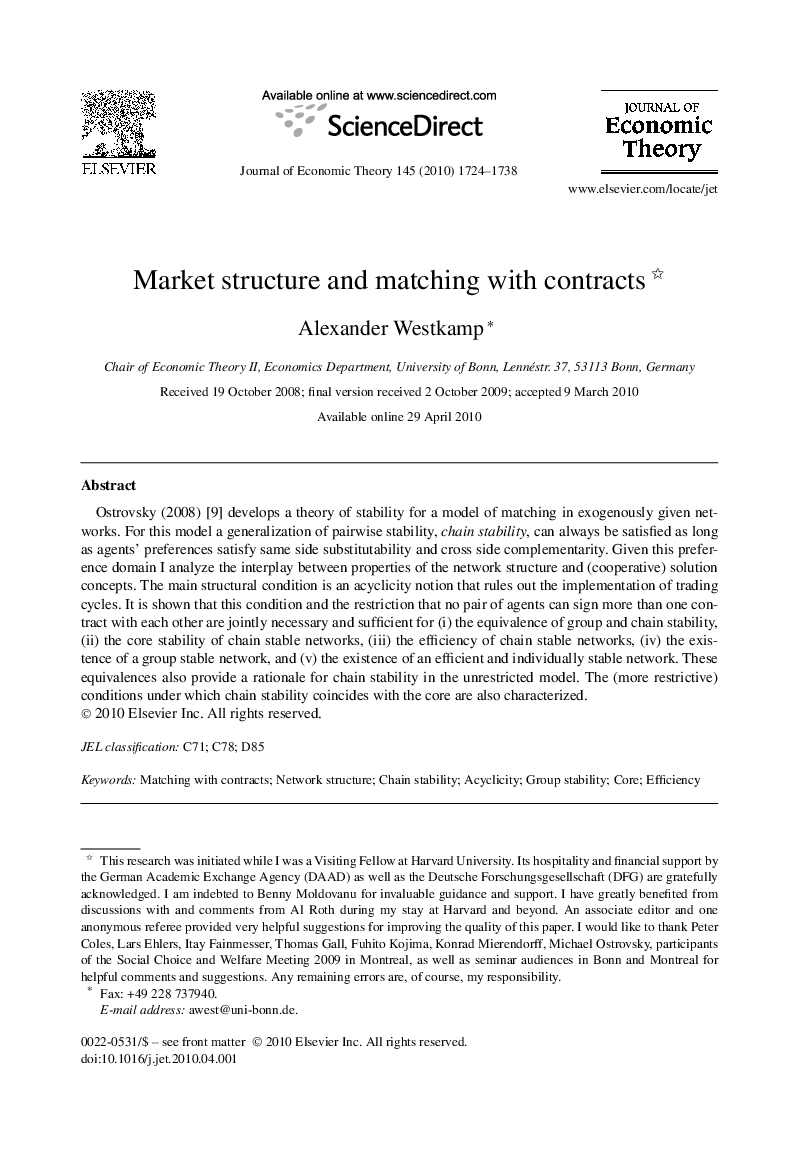| Article ID | Journal | Published Year | Pages | File Type |
|---|---|---|---|---|
| 957430 | Journal of Economic Theory | 2010 | 15 Pages |
Ostrovsky (2008) [9] develops a theory of stability for a model of matching in exogenously given networks. For this model a generalization of pairwise stability, chain stability, can always be satisfied as long as agents' preferences satisfy same side substitutability and cross side complementarity. Given this preference domain I analyze the interplay between properties of the network structure and (cooperative) solution concepts. The main structural condition is an acyclicity notion that rules out the implementation of trading cycles. It is shown that this condition and the restriction that no pair of agents can sign more than one contract with each other are jointly necessary and sufficient for (i) the equivalence of group and chain stability, (ii) the core stability of chain stable networks, (iii) the efficiency of chain stable networks, (iv) the existence of a group stable network, and (v) the existence of an efficient and individually stable network. These equivalences also provide a rationale for chain stability in the unrestricted model. The (more restrictive) conditions under which chain stability coincides with the core are also characterized.
